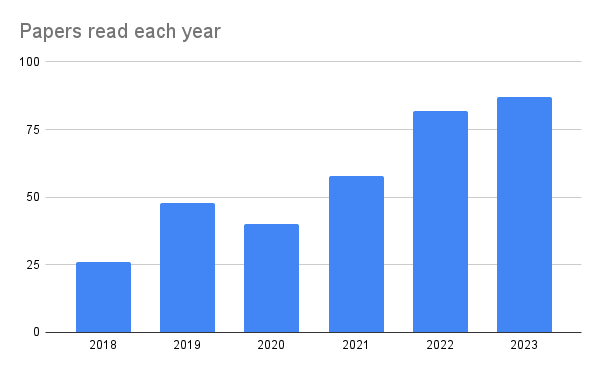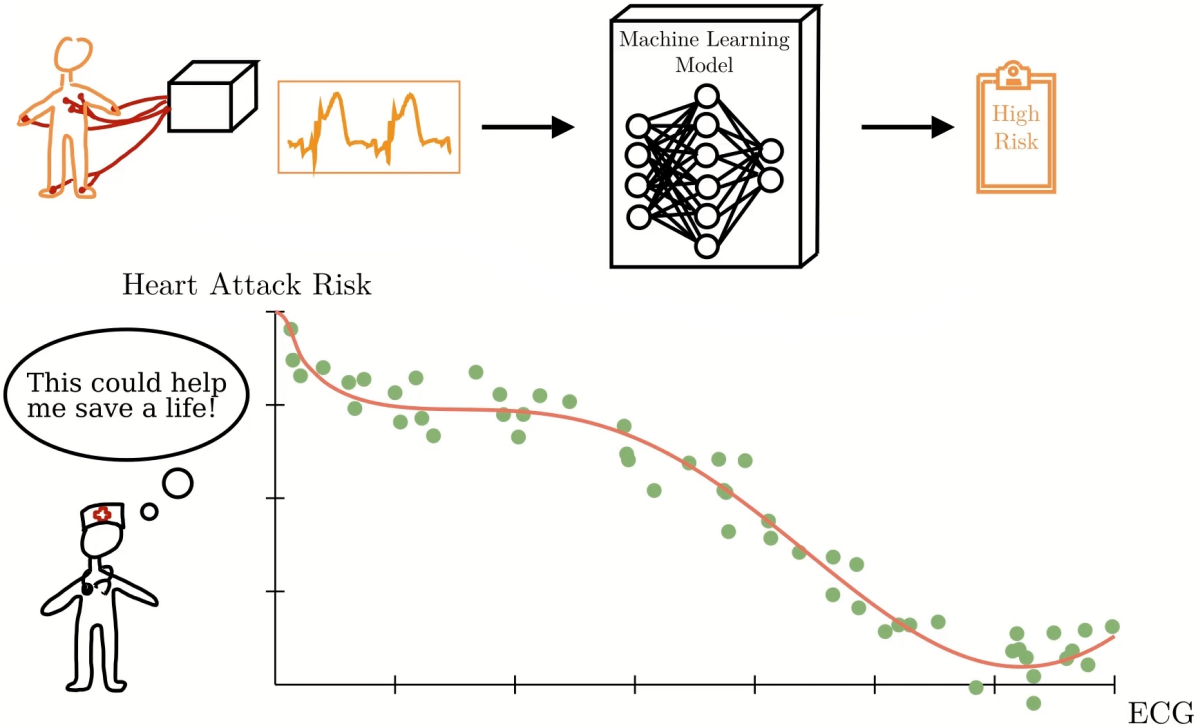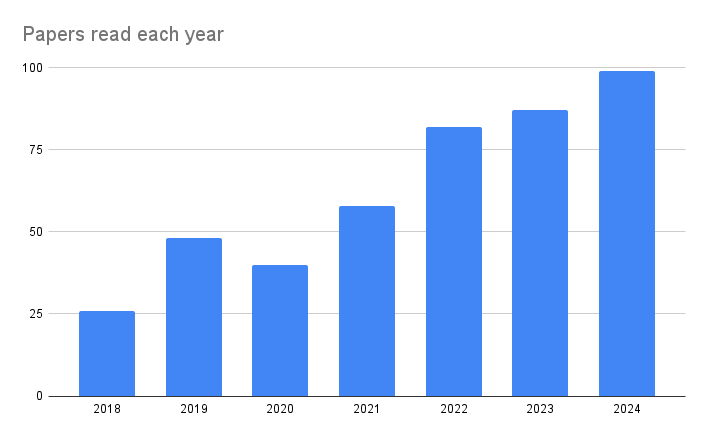In 2024, I read 99 papers and 21 non-technical books. 99 papers is slightly more than my previous record (87 papers in 2023), while 21 books is slighly less…
Posts

My Year of Reading in 2023
In 2023, I read 87 papers and 26 non-technical books. 87 papers is slightly more than my previous record (82 papers in 2022), and I’ve never even been remotely close to reading 26 books in a year. Deciding to read more books is definitely…

The How and Why of Reading 300 Papers in 5 Years
Since I started my PhD almost five years ago, I have categorized, annotated and written short comments for all research papers I read in detail. I share this publicly in a GitHub repository, and recently reached 300 read papers. To mark this milestone, I decided to share some thoughts on why I think it’s important to read a lot of papers, and how I organize my reading. I also compiled some paper statistics, along with a list of 30 papers that I found particularly interesting…

Explaining Machine Learning and How It Can Be Used to Help Doctors
We have created a video in which we try to explain how machine learning works and how it can be used to help doctors. The explanation is tailored to grade 7-9 students, and the idea is that you only should need to know about basic linear functions (straight lines) to understand everything.

Getting Started with PyTorch:
1 - Linear Regression
When I first got interested in deep learning a couple of years ago, I started out using TensorFlow. In early 2018 I then decided to switch to PyTorch, a decision that I’ve been very happy with ever since…
Feedback
Please feel free to leave any type of anonymous feedback on my presentation at the following link: https://forms.gle/pfkhxdRzEE7ETmcs8
